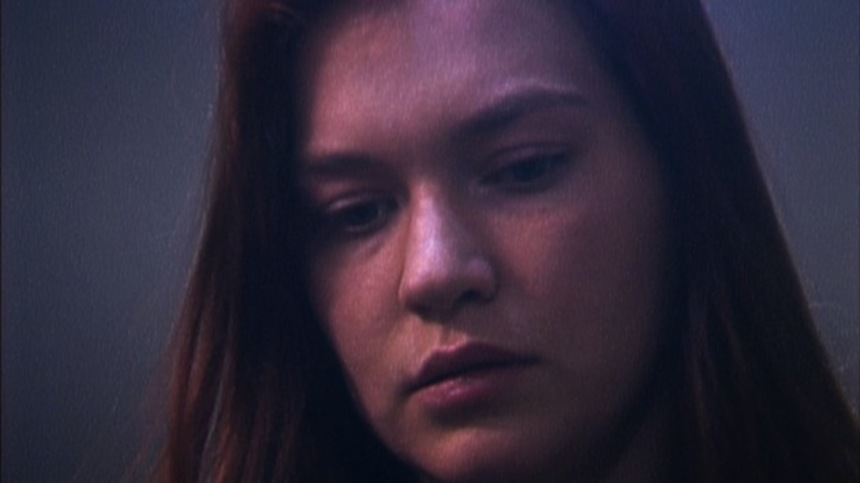Rotterdam 2015 Review: In STINKING HEAVEN Everything Rotten Is Good

Nathan Silver's fifth feature, Stinking Heaven, takes place in suburban New Jersey, circa 1990. Lucy (Deragh Campbell) and Jim (Keith Poulson) are a young married couple who have structured their home as a community for sober living, themselves addicts on the mend. We enter the home amidst a celebration: the wedding of Betty (Eleonore Hendricks) and Kevin (Henri Douvry), surely a bright new beacon in this house for the healing power of love. But when Betty's old flame Ann (Hannah Gross) shows up, it sends the house into a tumult not everyone will come out of unscathed.
Amidst affairs, relapses and accusations aplenty Campbell's Lucy -- measured, impassive -- and Gross' Ann -- wild-eyed, a loner, aggressive -- emerge as bookends to the warring lives that unravel on screen. As an instigator, Ann certainly pushes buttons, sending some residents reeling from the house. But for someone like Lucy, who can barely get a word in edgewise, whose husband grows more and more distant from her by the day, Ann offers hope. Ann offers escape.
What Silver and his mesmerizing ensemble address here is how friction, how self-hatred and fear must be rung through to get to the healing. As the title suggests living in a house of addicts when one is an addict themselves is no cake walk. To survive, the on-the-mend patchwork family perform sing-a-longs, make fermented tea, and videotape reenactments of their darkest moments, hoping that role playing and reliving will exorcize the demons they hold so dear. For some, living in this ruptured harmony is the key to their healing; for others being alone may in fact be a better choice. No one is beyond saving, but not everyone seeks to be saved either.
Silver and cinematographer Adam Ginsberg capture all this with professional broadcast video cameras that date back to the 70s. The sense derived from this choice results less in the film feeling like a relic from a bygone era, and of something immediate, intimate and vital. The video cameras act as an imprint of psychosis worn down by staving off madness, destruction and death. Full of life in somersault, the images captured are scratchy and fuzzy, the analog equivalent of rust and blood; of a stained heart beating. Like the people they capture, they are not perfect, but they are alive.
So while the story is fiction, this approach lends the film something far more in common with documentary work, namely that of Canadian documentarian Allan King and his so-called actuality dramas like Warrendale and Come On Children, which focus on communities in isolation. As a filmmaker Silver is in pursuit of actuality through the play-guise of fiction. In this way Stinking Heaven boasts Silver's usual adventurous and raw spirit. Like previous works Soft In The Head and Uncertain Terms, the director seeks truth of the moment. His penchant for deriving awkwardness through dinner scenes remains wonderfully intact here, too: The roving camera moving across the room, not afraid of negative space, eventually finding hands and faces; glimmers of such truths. Sometimes the results are very funny, sometimes heartbreaking, often ugly, and always human.
Brimming with a putrid effervescence and an ensemble cast willing to dig deep into the filth of life, Stinking Heaven further confirms Silver's talent as a great conductor of chaos.

Do you feel this content is inappropriate or infringes upon your rights? Click here to report it, or see our DMCA policy.






